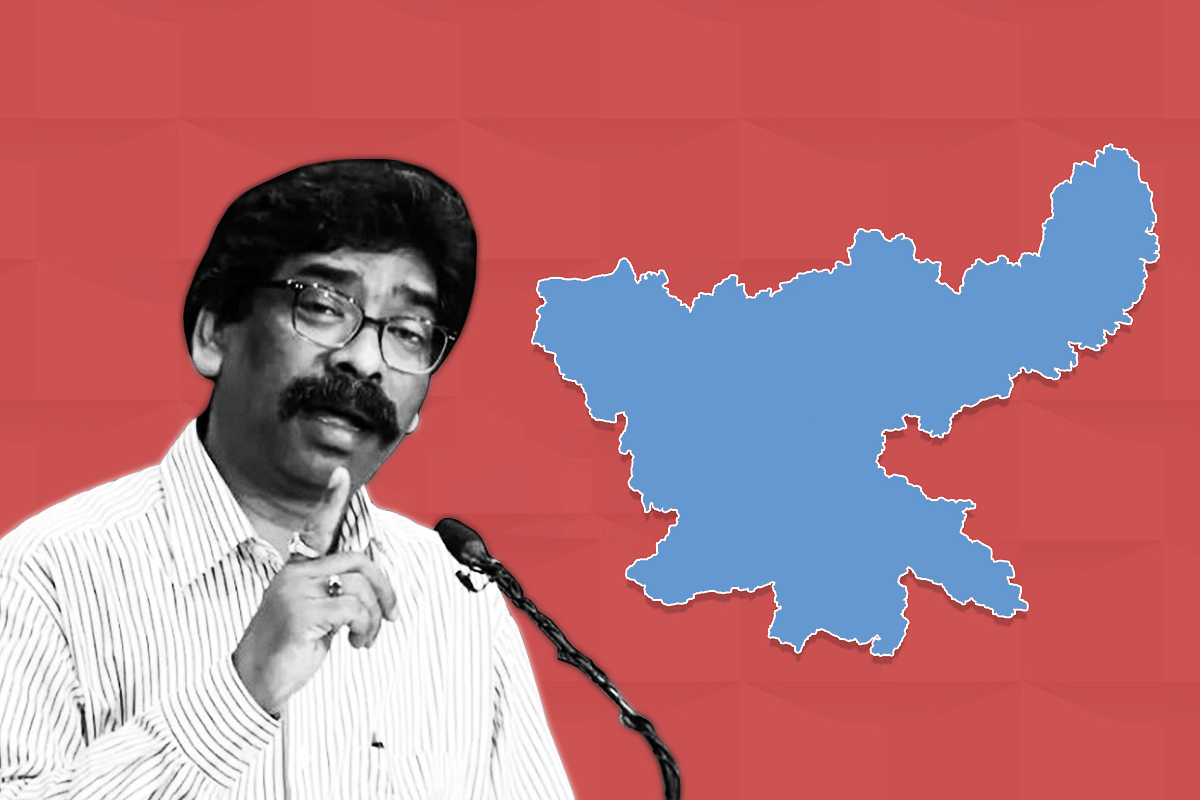News Brief
New Tourism Policy Aims At Reviving Jharkhand’s Rural Economy
- The policy aims to brand Jharkhand as a haven to ‘rest and recuperate’ by means of expanding tourist units under the ambit of wellness tourism.

Jharkhand Chief Minister Hemant Soren.
Pitching for reviving the tourism sector in the state, Jharkhand Chief Minister Hemant Soren has launched ‘Jharkhand Tourism Policy 2021’.
Unveiling the policy, organised by Federation of Indian Chambers of Commerce & Industry (FICCI), jointly with the Jharkhand government, the Chief Minister said, “Pandemic has been a challenge for people across the globe. Tourism sector has had the hardest hit. We have tried to figure out the deterrents in the path of development and aim to do the best that we can for the betterment of our state and its residents.”
The policy aims to revive, renew and revamp the tourism sector of the state, to provide a different dimension and perspective as to how the world views the state of Jharkhand.
It targets to bring out the marvels of the state that has an enchanting mix of old-world charms and new age excitements. Jubilant Jharkhand embarks on a journey to register its place as one of the most sought-after tourist destinations by 2025.
The key aspects of the policy focus on providing civic amenities and adopting ways of beautification for sites like Deoghar, Parasnath, Madhuban and Itkhori.
With its aim to elevate the potentials of religious tourism in the state, religious tourist units will also be set up. Further, with its ambitions to embrace eco-tourism and make tourist activities more responsible in nature, provisions are also being made to provide accommodations to tourists in forest rest houses and tree plantations along with development of eco-circuits like the Latehar-Netarhat-Betla-Chandil-Dalma-Mirchaiya-Getelsud circuit.
To help tourists experience the regal and resplendent culture of Jharkhand, there is a push to organise food festivals, interstate cultural exchange programmes and conferences to showcase the vibrant and diverse culture of the state.
Efforts are also being made to bridge the gap between rural and urban areas and at the same time, boost the local rural economy. Activities include renovation of identified villages, promoting local cuisines, showcasing rural life, while publicising and promoting tourist specific villages to enhance the potential of rural tourism. Village tourism committees and rural tourism subcommittee are to be formed in this regard.
The policy also strives to cater to the modern travellers by making ample room for their tastes and likings. Promotion of adventure tourism activities such as paragliding, water sports, rock climbing, gliding etc, is been proposed. Further, annual adventure sports events are to be organised and regulatory frameworks for ensuring safety standards are to be set up. Water sports activities would be developed and extended to various water bodies in the state like Tilaiya, Massanjore, Chandil, Pataratu, Getalsud, Kelaghagh, Kanke Dam, Hatia Dam etc.
The policy aims to brand Jharkhand as a haven to ‘rest and recuperate’ by means of expanding tourist units under the ambit of wellness tourism. Exciting getaway options for those looking for a break from the mundane and fast paced city life have been incorporated by the virtue of weekend getaway tourism.
Mining tourism, which is a new concept gaining traction nationally and internationally across will be explored under the policy to exhibit the mineral strength of the state.
The new policy seeks to attract an influx of investors to the state. Attractive provisions have been proposed for prospective investors which include: direct purchases of land of tourism enterprises, road permits, subsidy limit of 20-25 per cent upto Rs 10 crore for new tourist units, new tourism units shall be entitled to reimbursement of 75 per cent of net state goods and services tax (SGST) paid for five years since the commencement of commercial operation, no holding tax to be charged to new tourism units and reimbursement of electricity duty for the first five years.
Other measures include benefits for the municipal corporation area and Jamshedpur NAC area with subsidy limits of Rs 7.5 crore and Rs 10 crore respectively, and additional five per cent incentive over and above a cap of Rs 5 lakh for SC/ST, women entrepreneurs, handicapped persons and ex-servicemen shall also be admissible. Special packages will be provided to investors on a first-cum-first serve basis.
Support Swarajya's 50 Ground Reports Project & Sponsor A Story
Every general election Swarajya does a 50 ground reports project.
Aimed only at serious readers and those who appreciate the nuances of political undercurrents, the project provides a sense of India's electoral landscape. As you know, these reports are produced after considerable investment of travel, time and effort on the ground.
This time too we've kicked off the project in style and have covered over 30 constituencies already. If you're someone who appreciates such work and have enjoyed our coverage please consider sponsoring a ground report for just Rs 2999 to Rs 19,999 - it goes a long way in helping us produce more quality reportage.
You can also back this project by becoming a subscriber for as little as Rs 999 - so do click on this links and choose a plan that suits you and back us.
Click below to contribute.
Latest